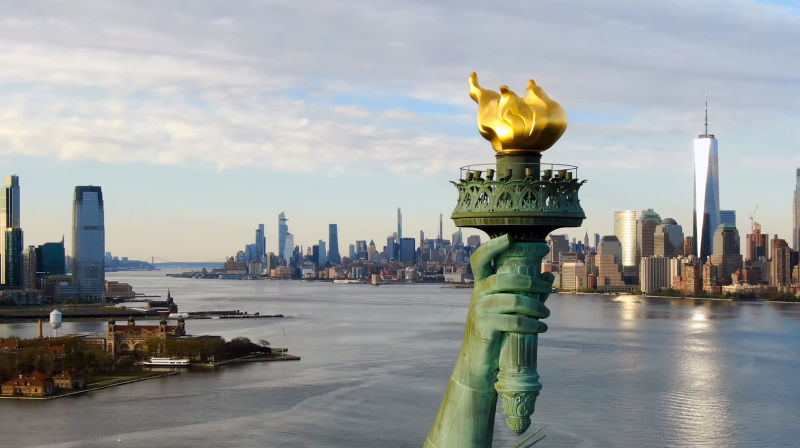Who stands for freedom?
March 17, 2023
I was recently sent an interesting article titled Who Stands for Freedom by the Nobel Prize-winning economist Joseph E. Stiglitz. The article is a review of the book The Big Myth by Naomi Oreskes and Erik M. Conway. It raised a fundamental question: Does China have more true freedom than the United States?
Stiglitzs message is encapsulated in his introductory paragraph:
For decades, Americans have been led to believe that liberty is more or less synonymous with anti-government market fundamentalism. But, because this conception of liberty fails to account for the complexities of real societies, it cannot possibly deliver the “freedom” it promises.
He then goes on to detail how freedoms in the United States that are espoused by anti-government market fundamentalists, such as the freedom to carry guns and the freedom of unfettered speech on social media, have impaired other more basic freedoms that all peoples desire.
He lists the freedoms that have suffered. His point is that the ideology of anti-government market fundamentalism has led to this degradation of freedom.
But something about the Stiglitz review caught my attention. He probably isnt aware of it, but Stiglitz is making an argument that China has more true freedom than the United States.
The following features of US life that Stiglitz cites as deficits of true freedom in the US are not deficits in China:
- Social-media platforms constantly pollute our information ecosystem with disinformation and content that is well-known to cause harm.
China, as we know, limits this.
- … the freedom to carry guns has come at the expense of the freedom to go to school or the store without being shot.
One of the first things people in China sometimes mention to me about the US is that they would be afraid to go there because of the guns.
- And millions have lost what Franklin Delano Roosevelt thought was so important, the freedom from fear.
The vast majority of Chinese are not fearful of their government, while many people in the US are fearful not only of their federal government but of their police, their crime, and people on the other side of the political spectrum who they believe hate them, in part because of their hateful speech on social media.
- The greater ones opportunity set, the freer one is to act. Someone on the verge of starvation doing what she must just to survive effectively has no freedom.
By this measure China has enormously increased the freedom of about 800 million people who were previously in abject poverty.
- Investments in public goods (such as education, infrastructure, and basic research) can expand the opportunity set for all individuals, effectively enhancing the freedom of all.
China now does this better than the US.
Stiglitzs purpose, of course, was not to show how freedom in China is greater than freedom in the US. There is no mention of China in his article. He, like almost everyone else in the US, assumes there is no question that freedom in the United States is greater than in China.
But even freedoms that might seem most obviously greater in the United States than in China recede under closer scrutiny. Consider freedom of speech on social media.
In a remarkable 2020 article in The Atlantic magazine, law professors Jack Goldsmith and Andrew Keane Woods concluded that In the debate over freedom versus control of the global network, China was largely correct, and the U.S. was wrong.
They assert that As surprising as it may sound, digital surveillance and speech control in the United States already show many similarities to what one finds in authoritarian states such as China.
The private sector, not the government, currently takes the lead in these practices. But there is an inexorable trend toward growing involvement of government. Platforms like Facebook and YouTube already share information with federal government and law enforcement when requested or required to do so, and do it routinely to fight foreign electoral interference, child pornography and sex trafficking, and other universally acknowledged harms. Police use subpoenas to gain access to personal data collected by private companies, including data from doorbell cameras, microphones in Amazons home Alexa devices, and data in DNA databases that people pay to enter.
And, according to Goldsmith and Woods, the company Clearview AIprovideslaw-enforcement agents with the ability to scan an image of a face across a database of billions of faces, scraped from popular apps and websites such as Facebook and YouTube. More than 600 law-enforcement agencies are now using Clearviews database.
Goldsmith and Woods argue that These and similar developments are theprivate functional equivalent of Chinas social-credit ratings, which critics in the West so fervently decry.
Trying to surveil their data and prevent harmful speech and images on these private databases is a major headache for the corporate owners. It will become even more so if Section 230 of the legislation passed by Congress, the Communications Decency Act, is amended to make these platform owners less protected from lawsuits for the harms that communications on their platforms cause.
Mark Zuckerberg, CEO of Facebook, has even invited the government to regulate content on Facebook. It may become inevitable that it will, but that will result in a huge fight over the freedom from government interference in free speech.
The difference between the United States and China is constantly drawn by Western politicians and media alike as an almost black-and-white difference between freedom and authoritarianism. But the difference may be much grayer than they thought, and much less to their liking.

